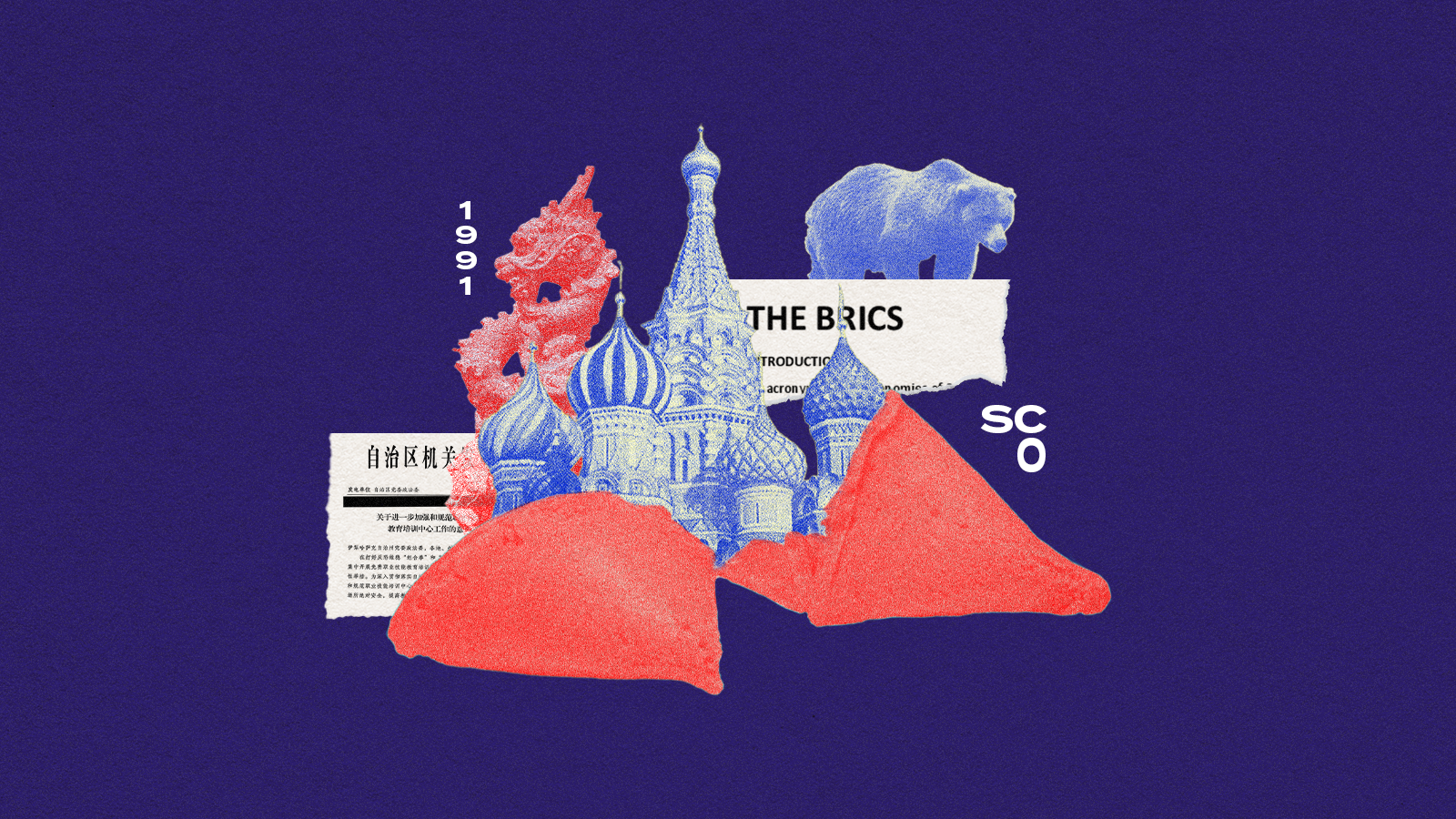China is pro-Chinese and not pro-Russian–says Dr. Mikhail Karpov highlighting that BRICS is a paradoxical unity. Insight to the Sino-Russian relations by an expert coming directly from Moscow.
How do you see China from the point of view of Russia? Is it an ally or maybe someone who is speaking a lot while doing nothing.
China is definitely not an ally. I believe in friendship between people, but when we talk about countries, it's always another story. I prefer not to use the term ‘friend’ in the context of international relations. China is a partner of Russia and it's not a coincidence that Sino-Russian relations are called Sino-Russian strategic partnership, and this is exactly how it looks like today. What many foreigners do not understand, especially what many Westerners including Hungary, is the peculiarity which exists in Russian Chinese relations. I would call it even a pathology, to some extent, not necessarily in a negative sense. This pathology is that Sino-Russian relations are unique in the sense that these two big countries having the sixth long continental border in the world but sharing basically nothing culturally. Some people in the West would disagree with me but Russia is a European country and culturally and socially Russia does belong to East and Central Europe. However, fundamentally Russia is a big imperial country it does belong to this region. China is also a big post-imperial country, but it belongs to different cultural hemisphere thus there is a lack of mutual perception between Russia and China. We may have a very complicated and bloody history between Russia and Hungary, but we do understand each other, right? We speak the same language in this cultural sense.
In cultural sense, yes.
When we deal with China in cultural sense, the language is different, and this brings us to a very specific situation when two big countries basically find fundamental complications when dealing with and interpreting each other. There is a sort of say: their destiny is to be neighbours while not connected. We have to cooperate but this pathological situation, not necessarily in bad sense, brings many misunderstandings regarding Sino-Russian relations.

According to Western analysts, China wants to expand in the Russian Far East, populating it and acquiring its natural resources. In my opinion – I have visited the Russian Far East in 2021 – it is not true. From an economic point of view China is an external power bit it is not imperialistic. How do you see the situation?
This is exactly the notion which does exist in public opinion and in expert cycles. I can tell you one thing that theoretically it can happen but it's very difficult to imagine that it will happen in the near future. The faraway future? I do not know but so far it didn't happen. The point is that in fact, post-Soviet Sino-Russian relationship was laid in April 1996 when President Boris Yeltsin went to Shanghai to meet with the General Secretary of the Chinese Communist Party (CCP), Jiang Zemin. There was the Shanghai Declaration, which was judicially not binding, but created the framework and fundament for the normal partnership between Beijing and Shanghai. Although there were several agreements, judicially abiding agreements signed between Russia and China in 2001 and 2005, all of them were rooted in the foundations laid by Boris Yeltsin and Jiang Zemin in 1996. One of the fundamental prerequisites of China's policy towards Russia was not to scare Moscow into the arms of the West because the worst nightmare for Beijing would be an alliance between Russia the United States with semantic Chinese connotations. Chinese were clear enough to see that Russia shouldn't be scared and Chinese soft power might be used in Russia – many companies are investing in Russia without the feeling of the economic aggression. The Chinese trade is growing, but these investment in Russia remains marginal. Regarding Russian Far East there was no kind of demographic aggression, I can state this with total responsibility so far. It is just a partnership between the two countries that is the of conscious Chinese policy from 1996 until now.
In this case it is also possible that in the future China will put some pressure on Russia if needed.
I've been saying this everywhere either in Russia, in China or abroad that China is not anti- or pro-Russian; China is not anti- or pro-American; China is pro-Chinese – they are defending their national interests that is a stable partnership with Russia. Beijing is positive about the framework that was established in 1996, some even say that the last three decades were the best period in the whole history of Sino-Russian relations. This may sound too official or ideological, but it is indeed true. During the Russian imperialism there were clashes in the Far East, then the Soviet Union put pressure in China and vice-versa, after 1991 there was also confrontation because of Russian anti-communism movements until the Yeltsin-Zemin meeting. I do believe that China is not going to save Russia, also it will not support it totally.

Regarding the strategical partnerships BRICS and the Shanghai Cooperation Organization (SCO) must be mentioned. In the 2000’s Beijing proposed a free trade zone in the context of the SCO. Moscow said no. How do you see the living history of these corporations and the near future of them?
I do not share the alternative world order. I'll tell you quite openly: I've been always sceptical about BRICS that is an economic and not a political or geopolitical concept. It's a paradoxical unity of countries which in fact do not have many issues in common, either cultural or geopolitically and some of them are in rather acute competition between each other like India and China.
And Shanghai Corporation Organization?
I'm more positive about it. We might be critical or sceptical about it but at least SCO is more fundamental while having a framework to solve existing issues in the Asian region with the possibility to invite third parties into a productive discussion. Unlike BRICS, SCO is a stable setting like the European Union which can be useful. I don't believe in the collapse of the European Union since, if we don't have the EU, then the world would be messier in many ways. We may say that EU or SCO is too bureaucratic, a huge structure with more talk than reality but by the end of the day we do have the structure to solve really important issues like centralization, security, Sino-Indian relationship, like Sino-Russian relationship in the Central Asian context. These issues are manageable so far.









